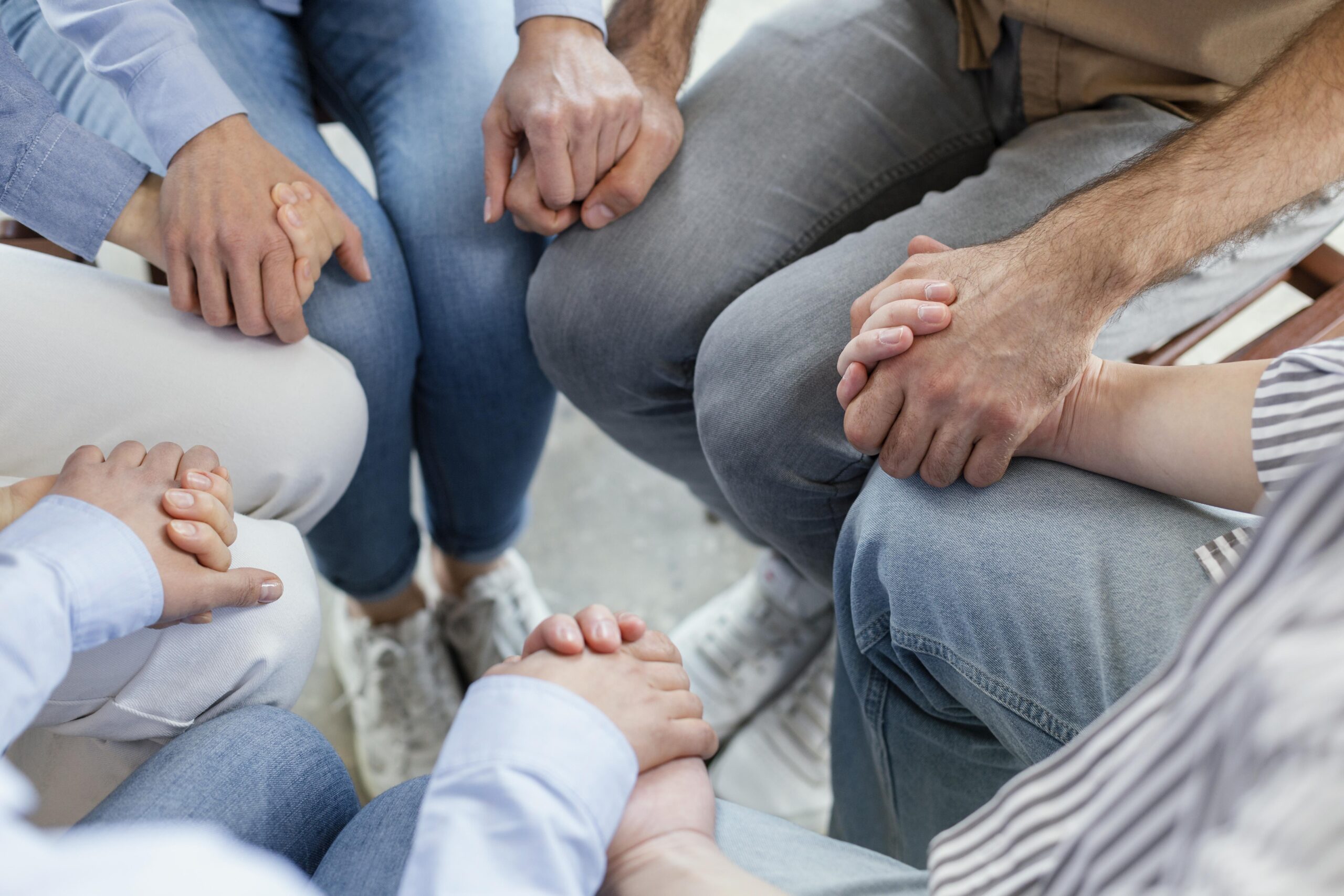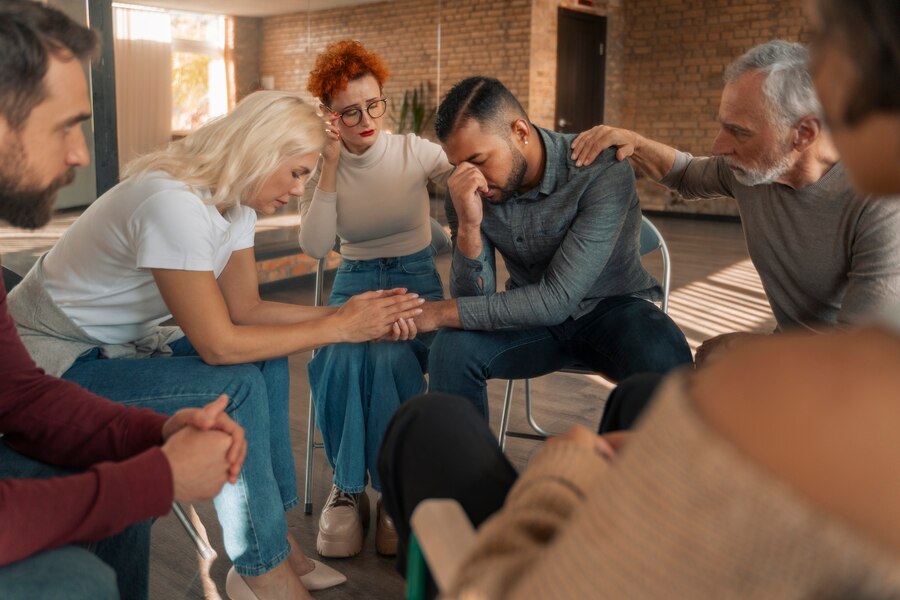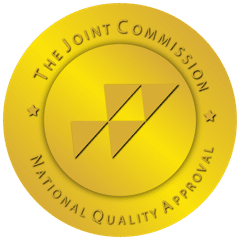How drinking coffee daily can lead to America’s invisible addiction.
Caffeine is the most commonly used drug in the world. About 90% of U.S adults drink caffeine every single day. It’s also the only drug that we allow children to consume, in the form of soda, fizzy drinks, and chocolate.
But you probably never even thought of caffeine as a drug, right? Most people don’t. Coffee culture, cafés, and that morning cup of joe are typical aspects of our culture. Drinking coffee has become so routine that we would never equate it with addiction.
Caffeine addiction is real, possible, and more common than you’d think. The good news is you can recover from caffeine abuse. Let’s get into the details and signs of caffeine addiction, as well as how to get help!

Who Is Most Likely To Abuse Caffeine?
According to research based on a group of high school students, there are excess risks of addiction for certain people. Researchers were able to determine who might be most affected by caffeine addiction:
- In poor health or are physically disabled
- Have chronic depression
- Have a family history of substance abuse
- Consider caffeine to be safe
Regardless of these statistics, anyone can develop a caffeine addiction. But how do you know if you have it?
Signs of Caffeine Addiction
Knowing risk percentages can be a useful method of determining if you’re in danger. But what are the actual symptoms of full-blown caffeine addiction?
You Drink More Than Four Cups Per Day
The recommended maximum amount of caffeine for adults is 400 mg. This equates to about four cups of brewed coffee or ten cans of soda.
Exceeding this amount once in a while isn’t dangerous and can easily happen, especially when drinking coffee with friends. But if you find yourself consistently consuming more than 400 mg, you might have an addiction.
You Try To Quit But Fail
Have you ever tried to ditch caffeine cold turkey? It might feel impossible to get through your day. Multiple unsuccessful attempts to quit could be a sign of addiction.
Many people try to quit coffee, specifically. They then supplement the caffeine loss with sodas, tea, and energy drinks. These beverages all have high amounts of caffeine, making the quitting attempt futile.

You Experience Negative Symptoms
Insomnia, jitters, and heart palpitations are all unpleasant side effects of caffeine overdosing. You’ll start to feel these impacts if there is more than 15 mg/L of caffeine in your blood.
- You might also feel the following signs of overconsumption:
- Confusion
- Nausea
- Irritability
- Panic attacks
- Fast breathing
- High body temperature
- Dehydration
- Anxiety
- Insomnia
Although a caffeine overdose is more often linked to caffeine tablets and supplements, it’s possible with plain old coffee as well.
You Need It To Get Through The Day
If you can’t bear the thought of not having your morning coffee or your lunchtime, mid-afternoon, and post-work coffee, you might have a problem.
Your energy levels and mood might dip if there’s not enough caffeine in your system. You might experience brain fog, headaches, and confusion. Needing caffeine to get through the day means you may have become dependent on the substance.
What Is Caffeine Use Disorder?
Doctors use the Diagnostic and Statistical Manual of Mental Disorder (DSM-5) to determine whether an individual has a psychological disorder. According to the DSM-5, caffeine use disorder is a condition that needs to be studied further.
The DSM-5 did establish three criteria for diagnosing the disorder:
- A desire and unsuccessful attempts to control caffeine intake
- Continued caffeine use after experiencing negative symptoms
- Effects of caffeine withdrawals lasting longer than 24 hours
Other factors include cravings, rising tolerance, and an increasing amount of consumption. These are also prevalent in other substance abuse disorder diagnoses.
Additionally, researchers found that patients with caffeine use disorder usually suffered from:
- Poor sleep
- Substance abuse
- Depression
- Anxiety and self-medication
- Stress
- Functional impairment
This information might suggest that caffeine dependency and other psychological disorders go hand in hand. That’s why it’s crucial to seek help if you feel like your addiction has gone too far. There may be other underlying factors contributing to your caffeine abuse.
How Caffeine Affects The Body
Many people don’t understand how caffeine directly affects different processes and organs in the body. We know that it gives us energy and makes us feel alert, but what’s going on with the rest of our system?
Effects on the Brain
Did you know that chronic consumption of caffeine can change gray matter in the brain? Gray matter is part of the central nervous system. It makes up the cell bodies of nerve cells.
In one study, researchers found that consuming caffeine daily reduced the amount of gray matter in the brain. This finding is not necessarily negative, but it does show that coffee impacts our brains more than we think. The good news is that after ten days of being caffeine-free, the changes reversed.
Effects on the Stomach
Coffee can be very acidic, especially if you like it black. If you have a low tolerance or drink too much, it can aggravate heartburn or acid reflux.
It’s also a diuretic, meaning coffee flushes itself out through the liver. The result might mean a lot of bathroom trips if you consume too much. It can also cause cramping, diarrhea, nausea, and vomiting.
Central Nervous System Response
Caffeine stimulates our central nervous system. A great reason for drinking it in the morning is to get that energy boost and feel awake! But too much caffeine can cause a negative response triggering anxiety, panic, and nervousness.
But the most common issue caffeine drinkers complain about is headaches. Your brain’s blood vessels become used to caffeine, so when you stop consuming it, you might get a headache. Alternatively, if you over-consume, you’ll have the same result.
Blood Pressure
The effects of caffeine in your blood are most obvious within one or two hours of consumption. These can cause your blood pressure to spike for a short while. An increase of adrenaline or a short-term pause on hormones that widen your arteries might be the reason.
It’s generally not dangerous but if you do have heart problems or high blood pressure, you’ll need to cut back. If you have these issues, always check with your doctor if caffeine is safe for you to drink.
Skeletal System
A moderate amount of caffeine won’t affect your skeletal system. But consuming large amounts can interfere with calcium absorption. If you use caffeine supplements or powdered versions, it can be a big factor in this interference.
The main problem here is that lack of calcium can cause bone thinning, also known as osteoporosis. As you age, this will result in many future health problems such as easily breakable bones and strength loss.
Other lesser effects of overconsumption include muscle twitches and aches. These can interfere with your exercise routine and lead you to develop a dependence on muscle relaxers.
Who Should Avoid Caffeine?

Caffeine consumption should be a topic of discussion between you and your doctor. You’ll especially need to be careful if any of these apply to you:
- Are pregnant or breastfeeding
- Have insomnia or sleep disorders
- Experience chronic headaches, migraines, or auras
- Suffer from psychological disorders like anxiety or depression
- Often experience acid reflux or have a GERD diagnosis
- Have heart problems or high blood pressure
- Regularly take stimulants as a medication for health problems
While in most of these cases, a tiny amount of caffeine from chocolate, for example, is safe. Drinking large amounts of coffee or energy drinks will negatively impact your present condition.
Energy Substitutes
There are some natural ways to get the energy-boosting benefits of coffee without caffeine. These are all easy-to-find ingredients and can be consumed in different ways throughout the day.
Vitamin B
A vitamin B deficiency might result in fatigue and mood disturbances. Instead of reaching for coffee to combat these feelings, include more vitamin B-rich foods in your diet. Lean meats, greens, nuts, and seeds can raise B-levels.
An easy solution is to take a vitamin B supplement every day. You’ll notice the terrible feeling of fatigue will quickly disappear without caffeine!
Carob
Although most often used to mimic chocolate, you can try carob powder as a coffee substitute. It combines protein, vitamins A and B, and carbohydrates to provide extra nutrition. It also contains high quantities of pinitol which can give you that energy lift!
Maca Powder
Mix some maca powder with milk to make a steamy morning drink. Or throw a few scoops into a smoothie for a delicious, energizing treat. Maca is often used as a caffeine-free solution for fighting fatigue. Delicious, nutritious, and useful!
Nuts
Not only are nuts a healthy, balanced snack but they’ll give you tons of energy. Studies have found that eating nuts on a daily basis showed improvement in brain waves associated with memory and cognition. Next time you need to focus, reach for a bowl of nuts instead of a latte.
Caffeine Withdrawal Symptoms
Like with any drug, trying to quit cold turkey will produce withdrawal symptoms. While these are usually not dangerous, they can be tough to deal with. And people often give up when they don’t have the right support group or motivation.
Some of the most common withdrawal symptoms include:
- Frequent headaches
- Fatigue and low energy levels
- Lethargy
- Difficulty with focus and concentration
- Decreased motivation
- Irritability and mood swings
- Intense distress or sadness
- Muscle aches and body pains
Getting Help
If you’ve tried to kick caffeine and found yourself failing too many times, you might need help. Believe it or not, you can use similar pathways as conventional drug addiction treatments for your caffeine addiction.
Group Therapy
Research has shown that group therapy is a powerful tool in overcoming addiction. It is often used in both outpatient and inpatient models of addiction recovery. Group therapy is beneficial because it can:
- Remove shameful feelings
- Decrease loneliness and isolation
- Encourage bonding with others
- Allow patients to see various stages of recovery
- Keep people accountable
If you don’t have a natural support system, try group therapy for your caffeine addiction. You’ll be able to share your feelings and story with like-minded individuals who have been where you are. Group therapy is a judgment-free, safe place to explore your issues.
Individual Therapy
If group therapy is too intimidating or difficult to find, consider individual therapy. Some people believe that they don’t need a therapist because they have friends and family to talk to. But a professional has the training to guide you and handle your addiction with care.
Your therapist can help you get to the bottom of your addiction issues. They may even uncover connections with other psychological disorders that commonly co-occur with addiction. Through individual therapy, you can find the right support tools and create goals that are attainable.
Lifestyle Changes
Medically-supervised lifestyle changes are another option for quitting for good. Your doctor or a specialist can guide you through the steps to overcome your addiction. They may suggest a change in diet, exercise routine, or the addition of medicine.
Ditch Your Caffeine Addiction
While quitting your caffeine addiction can be overwhelming and difficult, but you don’t have to do it alone. Finding professional help, whether in the form of a support group or therapist, can make the process easier.
Once you break free from your addiction, you’ll start to experience the benefits of a caffeine-free lifestyle. Naturally stable energy levels, fewer headaches, and deeper sleep! You’ll find it much easier to make it through your day.
If you’re looking for a community or treatment options in the Anaheim area, Lift Off Recovery can help. Contact us today to schedule a consultation and discuss your options. We’re here to get you to a better place!





